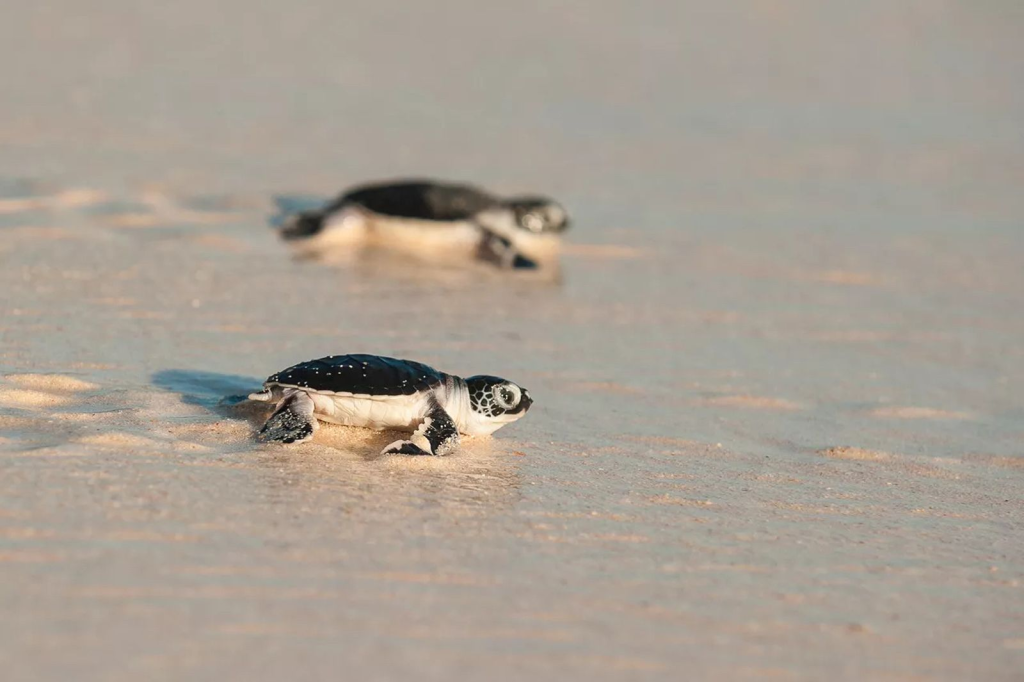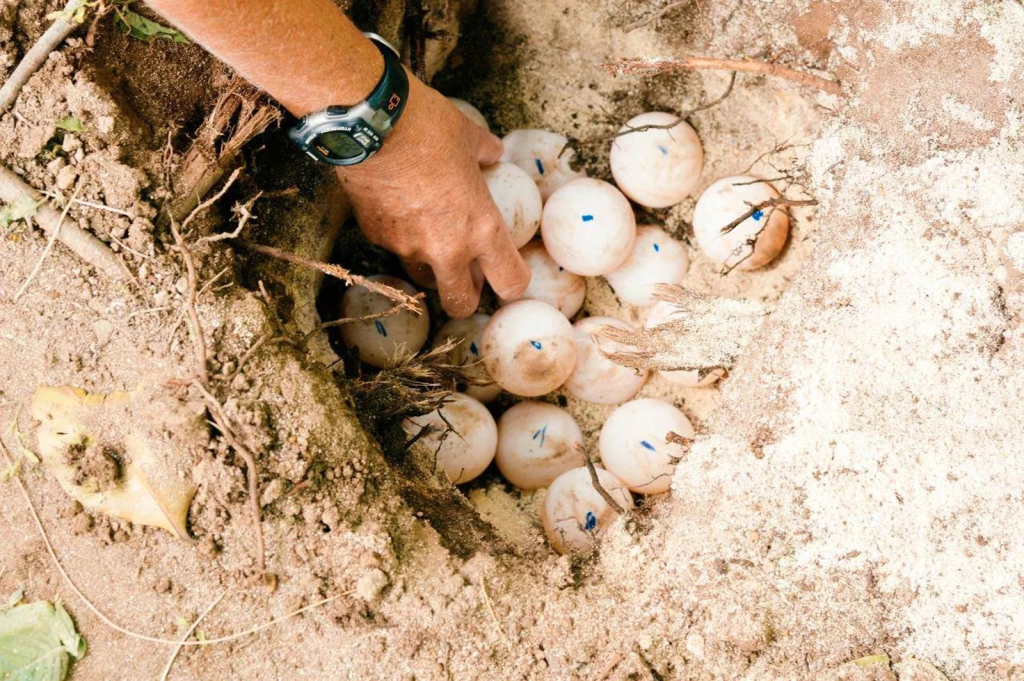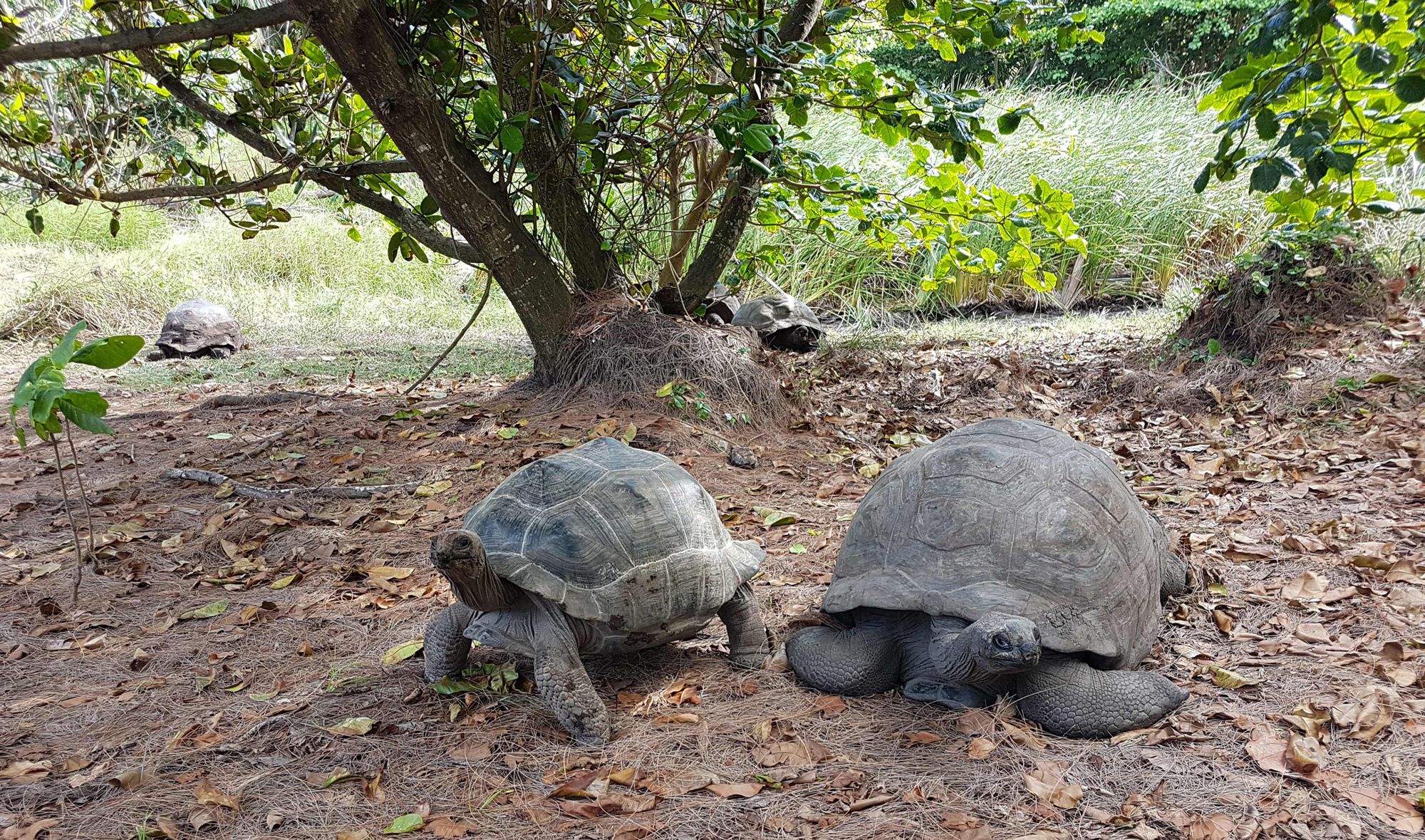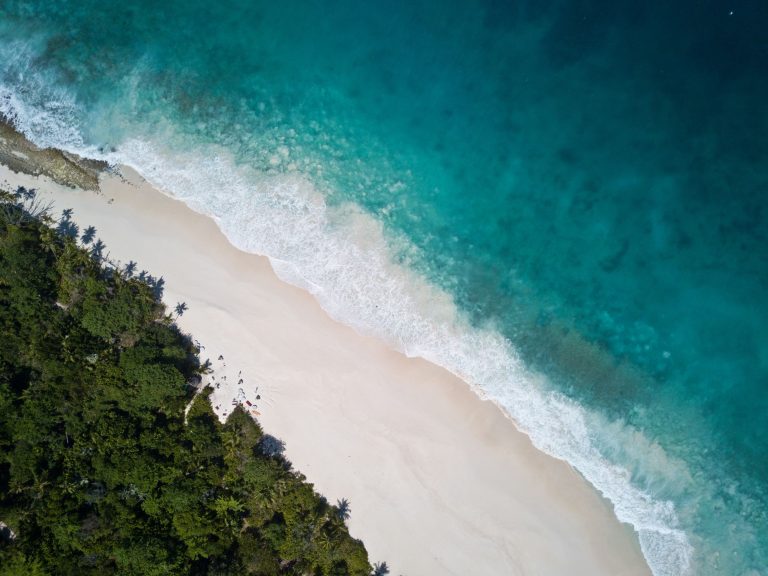Squaring our urge to see the world with the need to ease the impact of flights on the planet is now a major concern among top travel companies. According to the International Energy Agency, flights account for at least 2% of all global carbon emissions, with the sector’s impact growing faster than road, shipping and rail.
With a 2017 EU study showing that 85% of programs to offset planet-warming emissions from air travel do not work, pioneering operators are now looking towards a new approach, advising those who want to go on long-haul trips to take fewer of them and to stay for longer when they do.
UK-based operator Responsible Travel advises travelers to take this approach, saying it screens its vacations to ensure they reach high conservation standards and respect local cultural heritage.
Natucate’s North Island sabbatical
In the Seychelles one company, Natucate, is taking this to the next level. Operating on the archipelago’s North Island, its dedicated conservation trips are aimed at people taking sabbaticals or looking to maximize their entire vacation allowance.
These trips can last between 26 and 52 days, with the chance to do work to protect native turtle populations and giant tortoises, teaming up with small non-government organizations, or NGOs, on the ground who have the expertise to educate visitors and ground them in the world of conservation.
“The trend we are seeing is that people will maybe use more holidays in one go, then only do one international flight every two years, but then stay much longer,” says Daniel Kaul, CEO of Natucate.
Kaul began Natucate 10 years ago, having spent time as a university student volunteering in various National Parks across the United States. Keen to move into conservation tourism and change his career, he wanted others to experience what he had and learn about nature firsthand.
He says the trend towards longer trips has multiple benefits for all parties.
“We see that people want to stay longer and have a more conscious impact on conservation and to understand the conservation work we are doing better. They prefer this to coming for seven days and hurrying,” he says.
“Their contribution over a long time is needed by the NGO and, of course, they learn how the product works, learn how to work independently, and the whole project benefits.”
However, such long trips also have a positive long-term impact away from the Seychelles.

“It’s helping to spread the word about conservation,” says Kaul. “We have people who come back from a long sabbatical and they run a donation event and collect funding for those conservation projects. But we also see people engage with NGOs back home and think about wildlife or nature conservation and what you can do in your neighborhood. You can do something for biodiversity in your garden. And that’s definitely an outcome many of our clients tell us about.”
Turtles, tortoises and trees
On North Island itself, a private island northwest of the main Seychelles island of Mahé, Natucate’s clients can participate in long-form conservation and gain a greater understanding of the region’s biodiversity.
“We send people there for longer periods of eight or more weeks to assist the research team and scientists on the island,” explains Kaul. “And we do monitoring of green turtles, Hawksbill turtles, which include daily beach patrols. Sometimes we need to move nests a bit more towards the island so that they don’t get affected by the water.”
Visitors also assist in taking GPS locations of giant tortoises on the island, ensuring they remain protected, with their whereabouts known. But it isn’t just about the fauna. Kaul is keen to emphasize that the work Natucate does in the Seychelles is holistic too.
“We want to help endemic vegetation,” he says.
That involves removing alien vegetation and planting native trees.
“We planted trees which should be there, because this island used to be a coconut area.” In the water, clients and scientists work together to identify and track fish and other marine species, ensuring the health of the ocean remains a top priority.

A growing travel trend
The concept of the sabbatical, though, is clearly what drives this Natucate project on North Island. And it’s a growing trend. Payroll processing company Gusto found that 6% of US employees took a sabbatical in January 2022, double the number in January 2019.
This, they say, is linked to a wider understanding of burnout and the wish to put personal needs ahead of ambition in the wake of the pandemic.
“One hundred percent,” says Kaul when asked if he’s noticed the urge for longer breaks following Covid.
“We see so many people who are just desperate to rest their brains. They want to go to the wilderness and to stay as remote as possible. They want to do something good and conscious. And just enjoy nature. People want to do a conscious conservation sabbatical with us just to get a break from normal life.”
Kaul says that in the time since restrictions have eased, there has been a noticeable demographic shift in those taking such long breaks.
“It used to be much younger and would typically be gap year students or students coming immediately after they finish school,” he says. “Now the average age of our clients is older than 35. Seventy percent are female and a lot of them are taking a long sabbatical.”
Kaul says that one client stayed with them for 16 months working on a conservation project. It’s clear that a slower, more mindful take on travel is emerging on North Island.

Big tourism comes on board
Natucate’s work has clearly helped lead the change. And, says Kaul, he is pleased with the direction of travel in the wider tourism sector when it comes to interacting with the natural world.
“We are seeing a massive trend that even the big tourism companies and I don’t say this negatively are looking into sustainability and are looking into conservation. They’re saying ‘We can actually create a code of conduct for how to swim with whale sharks’ or telling visitors not to do elephant activities in Thailand, for example. I see a lot of movement there.”
Natucate’s efforts in the Seychelles perhaps point towards a healthier way for us all to travel. In a world where fast-paced, short trips are losing their allure, this slower, more mindful way of doing things looks set to have a future.
— CutC by cnn.com


